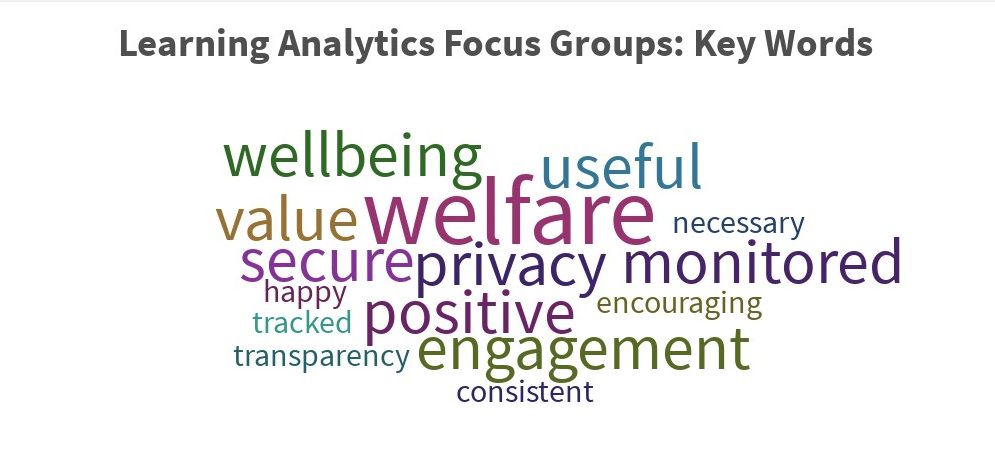Caitlin Harrison, Student Digital Champion
Before undertaking work experience with the CELT, I had never heard of learning analytics – more to the point, I had never considered that an academic institution could gather my data, let alone understand why that is beneficial to both the University and myself. For some background, learning analytics uses data about students and their activities to help institutions understand and improve educational processes and provide better support for all learners. Through this analytical process, opportunities are presented for improving general academic experiences and enabling positive interventions and engagements.
I began to understand more through reading relevant reports and articles. This led me be involved in creating a report detailing a series of recommendations to inform the implementation of learning analytics at the University of Derby. Written from my own perspective as a student, this report highlights 8 key issues that could potentially impact the implementation.
These are as follows:
- Responsibility
- Transparency and consent
- Privacy
- Validity
- Access
- Enabling positive interventions
- Minimising adverse impacts
- Stewardship of data
From my understanding, these issues directly affect students and their academic experience, so it is important for an institution to understand and address these areas. Within these areas, I worked with CELT to suggest key recommendations to ensure positive engagement and usage of student data.
Some of the key recommendations created include:
- Providing a clear and transparent explanation of what data is used and why
- Providing a clear data retention policy
- Ensuring robust data validity
- Ensuring absolutely no bias in the process at any point
It is also important to ensure the use of student friendly language; this is acknowledged by both myself and the University as being critical for transparency and understanding as learning analytics becomes widely introduced to students.
Whilst the report was interesting for me to write as a student, I wanted to see what other student’s thoughts were; would they have any ideas, and what are their opinions? With the help of CELT and the Union of Students I arranged two focus groups consisting of students, most of whom were student representatives and officers, so I knew they would be just as vocal as I am about their academic experience. The focus groups were extremely interesting, and much of what was discussed was agreed across attendees in both focus groups; I created a word cloud to summarise the key points and phrases used throughout the focus groups to give a general consensus of what students thought of learning analytics.

More specifically, students felt much the same as I did – initially there was a feeling of being monitored and tracked, however with explanation and understanding this feeling quickly dissolved and instead the value and necessity for learning analytics was understood. Students’ also expressed the desire to see their attendance, and whilst this is already being considered in the implementation, it sparked discussion over how our data should be presented to us as this directly impacts all current learners.
Recently, I attended the Student Experience Conference 2019 to present the work I had done with the CELT to students, stakeholders and University staff. This was an amazing experience, and I got a chance to see the amazing work done by other academics that help shape and define the student experience at University. It also was a great opportunity to speak to other Universities who are in their own stages of implementation of learning analytics; I was able to ask and answer questions and gain a better understanding of other Universities perspectives of the implementation process.
The report, focus groups and conference were key in developing my understanding of what learning analytics is and what it has set out to do, for both learners and institutions alike. At the beginning of the report, I wrote a short piece to summarise my experience, from a student perspective;
“… after I furthered my research into Learning Analytics, I began to understand the beneficial outcomes of the process… As a student, it is encouraging to know that my University is placing extra measures to ensure I am succeeding and coping without being invasive or biased.”
So far, it has been extremely interesting learning about the analytics process, and I anticipate the future of the implementation at the University of Derby!